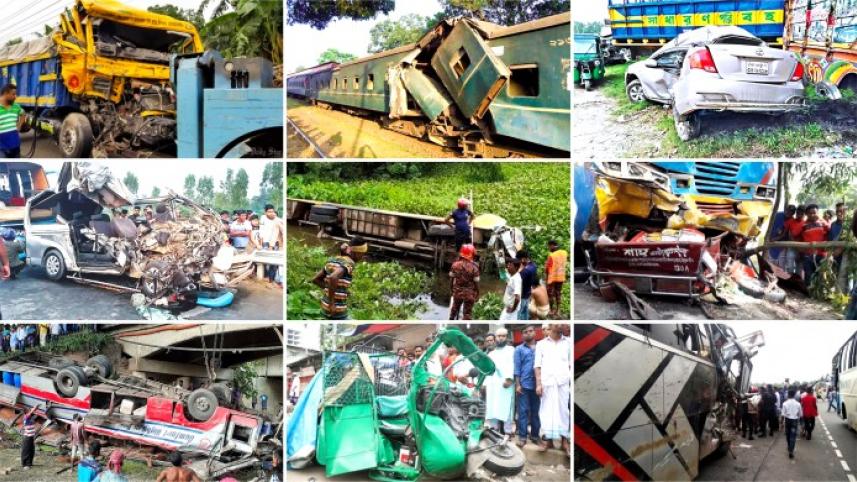Decisions from years ago retaken by road safety taskforce

The taskforce formed in October 2019 in order to reduce road accidents in the country, sat for its third meeting (since its inception) on Sunday, after a six-month hiatus—but not much progress seems to have taken place since its last meeting at all.
According to a report by this daily, they have come up with mostly the same decisions that they had taken in previous meetings or in other related platforms, but had remained unimplemented. For instance, the decision to stop the operation of battery-run rickshaws countrywide was originally taken in May 2011 in an inter-ministerial meeting, but then again on Sunday. As recently as last December (during its second meeting), the taskforce had asked the two city corporations and DMP to take measures for implementing the same decision in the capital. However, these rickshaws continue to operate in areas of the capital such as Mirpur, Nakhalpara, Tejkunipara and Kathalbagan.
The scenario is the same for other issues as well, such as those of transport workers requiring appointment/recruitment letters and motorbikers not being allowed more than one pillion on their vehicles—decided long ago, but still not implemented.
Unfortunately and expectedly, no direct answer could be had from the Home Minister (leader of the task force) when asked why the same decisions were being taken over and over again. The secretary general of the Bangladesh Road Transport Owners Association blamed the Covid-19 pandemic for such delays in implementation. The general secretary of the Bangladesh Road Transport Workers' Federation said that they have sent letters to the owners' association after the meetings, but have seen no progress.
According to a report by Nirapad Sarak Chai (Bangladesh's pioneering road safety campaign), at least 3,800 people were killed and 4,954 were injured in 3,232 road crashes in 2020 across the country. However, the numbers were much higher in Jatri Kalyan Samity's reports—at least 6,686 deaths and 8,600 injuries in 4,891 road accidents.
The most common causes of these accidents were said to be "reckless driving, risky overtaking, fault in road design, unfit vehicles, passengers and pedestrians' ignorance, use of mobile phones or headphone while driving vehicles, drunk driving, occupied footpaths and poor enforcement of law for the road crashes". Curiously, battery-run rickshaws did not seem to be a big contributor, so one has to wonder why a ban on those has been one of the major decisions taken by the government's road safety taskforce. We also wonder if the taskforce is focusing on the right things in order to bring down the number of road accidents in the country, and whether the decisions they have taken will be enough to curb these numbers—given that they are implemented at all.
We would urge the taskforce and all related authorities to stick by their own decisions and ensure they are seen through, but to also be more vehement in recognising the major causes of road accidents and to properly implement the Road Transport Act 2018. Otherwise, the numbers of people dying and being injured on roads will keep rising while authorities exchange the blame for it.



 For all latest news, follow The Daily Star's Google News channel.
For all latest news, follow The Daily Star's Google News channel.
Comments